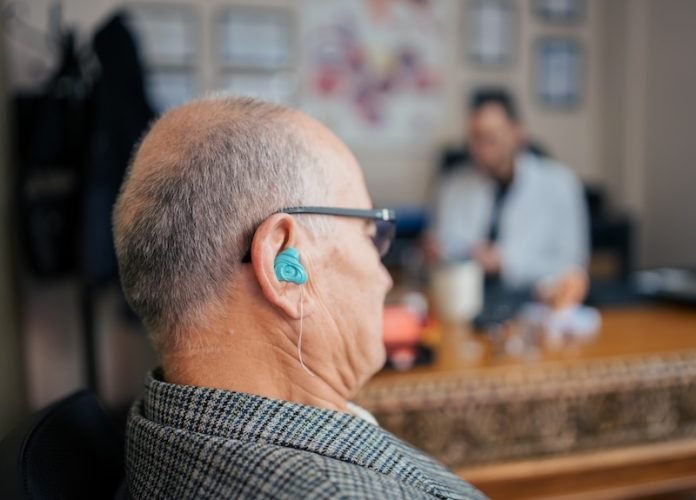
A recent study, involving a collaboration between the University of California San Diego and Kaiser Permanente Washington Health Research Institute, sheds light on how hearing loss in older adults might be linked to dementia.
Published in the Journal of Alzheimer’s Disease, the study found that hearing impairment in older adults is associated with changes in specific brain regions.
These findings could be crucial in understanding the relationship between hearing loss and an increased dementia risk.
Study Methodology and Key Findings
Researchers used hearing tests and magnetic resonance imaging (MRI) to analyze the brain structure of participants from the Rancho Bernardo Study of Healthy Aging. The study included 130 individuals who underwent hearing tests and later had MRI scans.
The scans revealed microstructural differences in areas of the temporal lobe, which is linked to auditory processing, and the frontal cortex, which is involved in speech, language processing, and executive function.
Potential Causes of Brain Changes
The study suggests that these brain changes might result from the extra effort needed to understand sounds due to hearing impairment. This additional cognitive strain could potentially lead to a higher risk of dementia.
The affected brain areas are responsible for processing sounds and are also involved in attention and cognitive functions.
Implications for Dementia Risk Reduction
Principal investigator Linda K. McEvoy, Ph.D., emphasizes the importance of interventions that reduce cognitive effort in understanding speech.
Measures such as subtitles, live captioning, speech-to-text apps, hearing aids, and choosing quieter environments for conversations could be key in protecting the brain and lowering dementia risk.
Protecting Hearing to Safeguard Brain Health
The study underlines the significance of preserving hearing to avoid these brain changes.
Preventive strategies include avoiding prolonged exposure to loud noises, using hearing protection when necessary, and minimizing the use of medications that can affect hearing.
Emilie T. Reas, Ph.D., a co-author of the study, highlights these precautions as essential for maintaining brain health and reducing dementia risk.
In conclusion, the study’s findings provide valuable insights into how hearing loss affects brain structure and function, potentially increasing the risk of dementia.
This research underscores the critical need to protect hearing as a means of safeguarding overall brain health in older adults.
If you care about Alzheimer’s, please read studies about the likely cause of Alzheimer’s disease , and new non-drug treatment that could help prevent Alzheimer’s.
For more information about brain health, please see recent studies about diet that may help prevent Alzheimer’s, and results showing some dementia cases could be prevented by changing these 12 things.
The research findings can be found in the Journal of Alzheimer’s Disease.
Copyright © 2023 Knowridge Science Report. All rights reserved.



